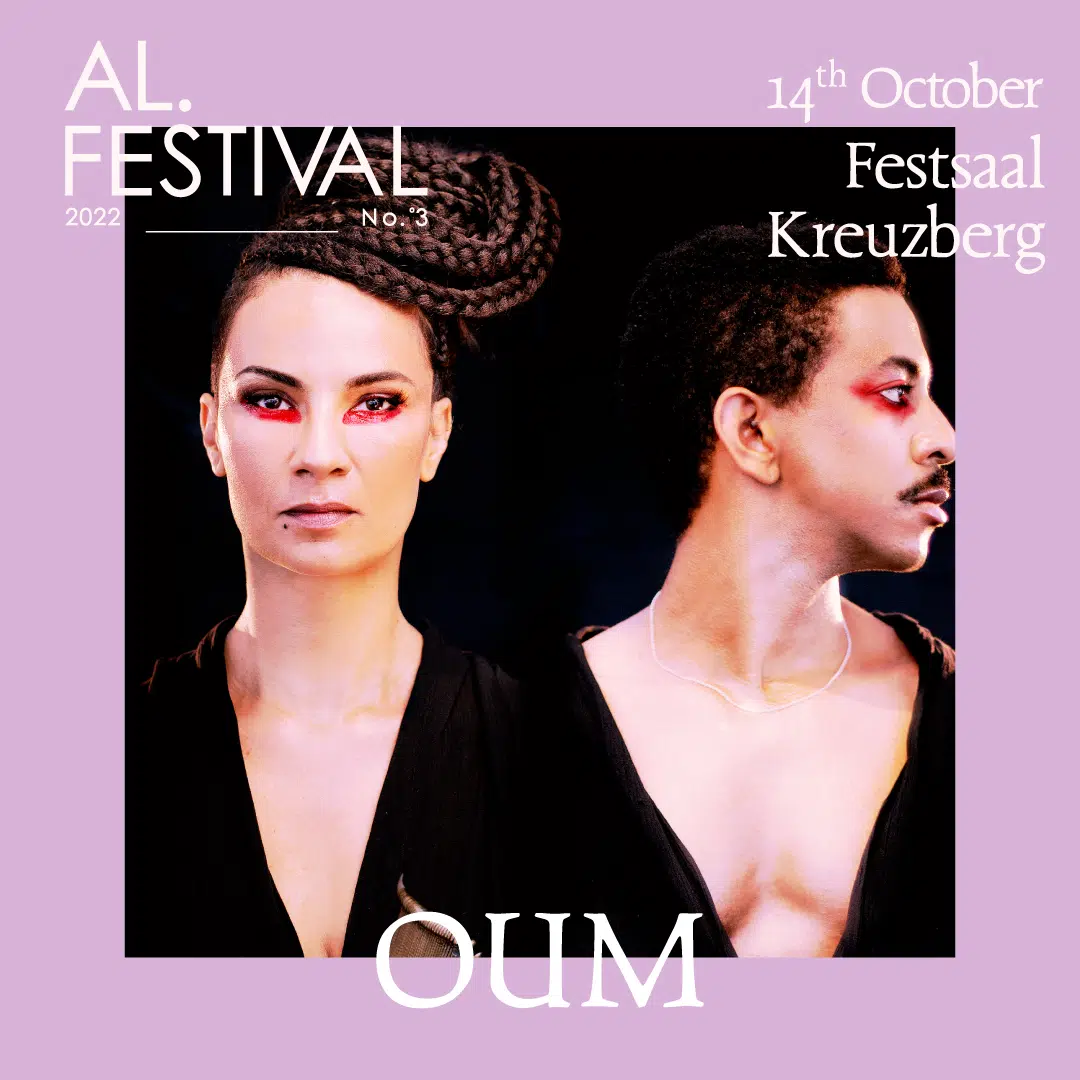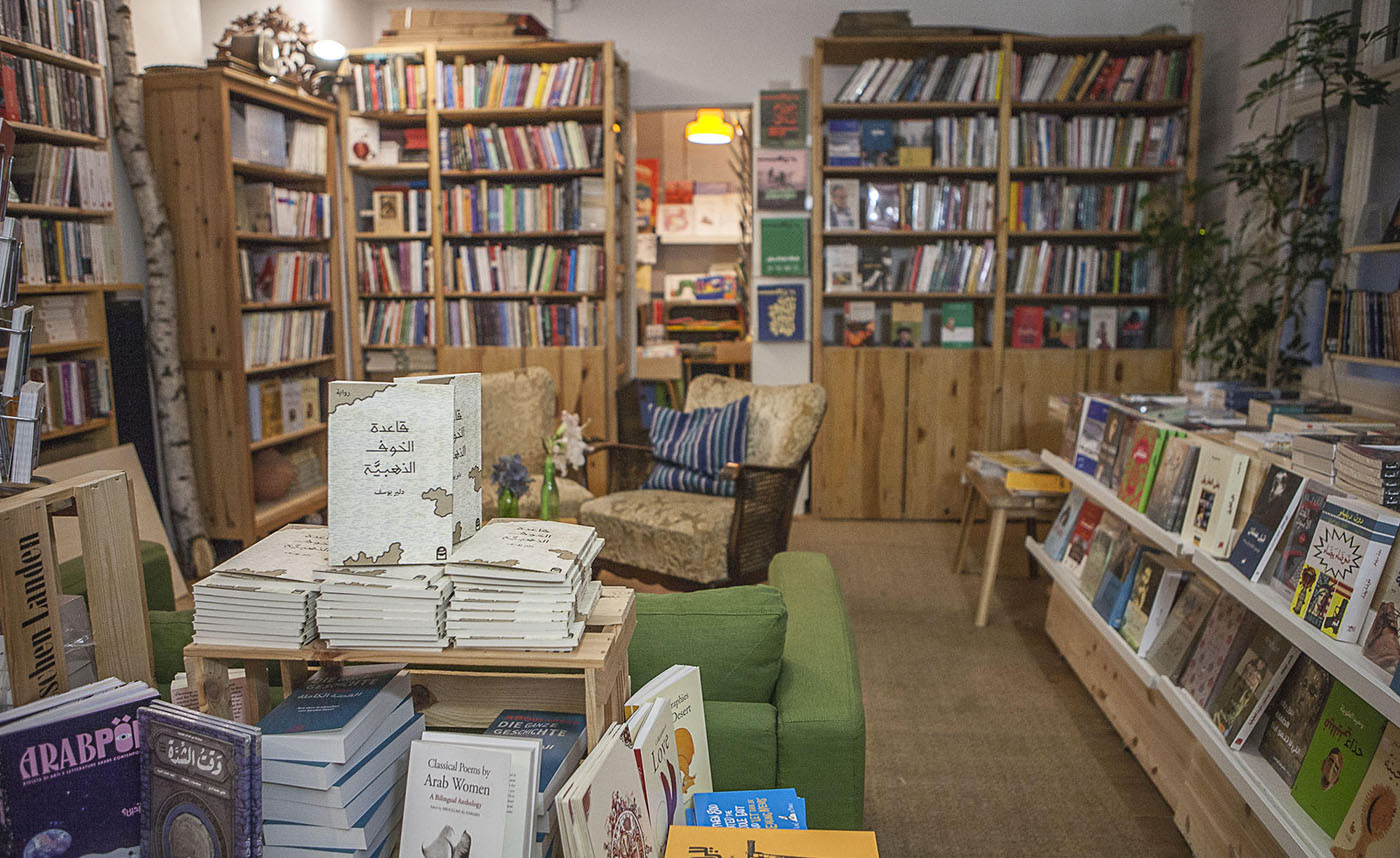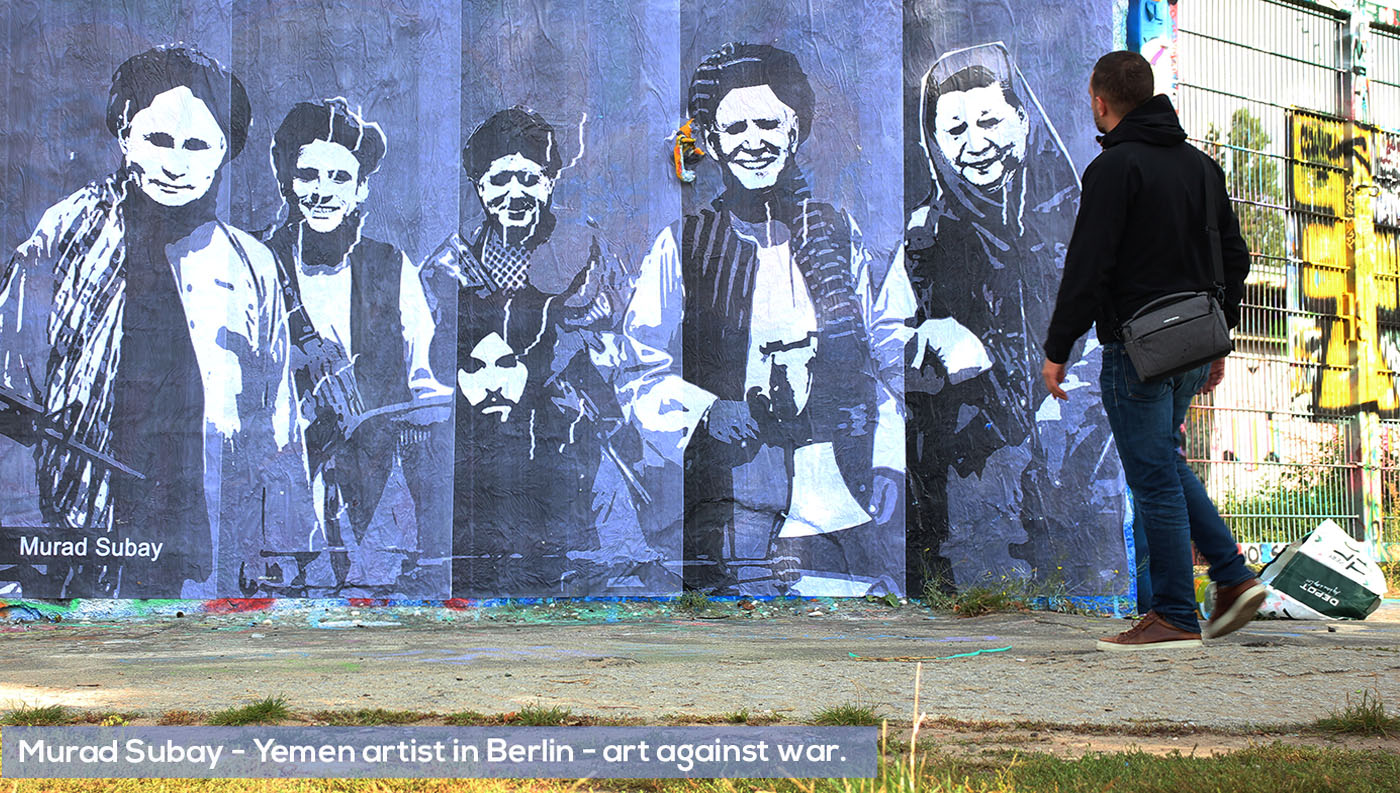In recent years, with the flow of refugees from West Asia and Africa streaming toward Europe, many have struggled to find acceptance and asylum in the UK, Germany, and several Nordic countries, but one city stands out as having become a preferred destination among Arab and other Middle Eastern immigrants, and that is BERLIN.
TMR’s 24th issue is devoted to Berlin from the viewpoint of its SWANA immigrants and refugees, in particular artists and writers, activists and educators from Afghanistan, Iran, Syria, Egypt, Algeria, Palestine and other countries south and west of the Mediterranean. Is Berlin the “new Damascus” or “new Cairo” as some have called it? This population had the precedent of a large Turkish migration; as a result, are Germans in Berlin more receptive to and accepting of Muslim immigrants?
Much of what we do at The Markaz Review is work with writers and artists who are moving or nomadic, who leave one country to start over in another, sometimes by choice, often of necessity. While some travel back and forth, many can’t go home again. Whether you define yourself as merely a traveler, a nomad or a displaced person seeking refuge, BERLIN now offers many of the comforts of home, in a liberal society that accepts all strangers.
Our guest editor for BERLIN is the German Egyptian film scholar and documentarian, Viola Shafik, who off and on has spent more than 20 years in Berlin, between her peripatetic existence that takes her to many world capitals. Shafik profiles artists Jihan El-Tahiri and Myriam El Haik in the Berlin Biennale, and reviews matters of colonialism and restitution in her essay My Berlin Triptych: On Museums and Restitution. She also interviews Ziad Kalthoum in Trajectory of a Syrian Filmmaker and profiles Palestinian photographer Mohamed Badarne.
Looking at just a few of Berlin’s many Middle Eastern artists, this issue includes Berlin-based Jordanian artist and curator Ala Younis, who interviews Iraqi artist Ali Yass on his new work, while Noushin Afzali profiles multimedia artist Shirin Mohammad, who glides back and forth between Berlin, Bremen and Tehran; and Melissa Chemam profiles contemporary Algerian-French artist Kader Attia as he discusses his role with the Berlin Biennale.
Iskandar Abdalla reviews Mohammed Shawky Hassan’s new film, an ode to queer love, and Necati Sönmez, a Berlin film critic and curator, reviews the new music documentary from German-Turkish director Cem Kaya on immigrant Turkish music in Germany.
In Berlin Gastronomical, author and literature professor Randa Aboubakr, who travels back and forth from Cairo to Berlin, explores the city’s Arab food offerings, while Mohamed Radwan writes about his experience running Kairo Koshary, Berlin’s Egyptian food truck.
In The Intruders and the City, Rasha Abbas, a Syrian writer who ventures into the surreal, examines her conflicted relationship with Berlin, in a translation from Katharine Halls. Palestinian novelist Shada Mustafa, meanwhile, turns in a short story entitled “Paranoid in Berlin,” and Ahmed Awadalla writes about love in Berlin, in his short story “Another German.”
And this issue’s centerpiece from Egyptian writer Ahmed Awny, “What Are You Doing in Berlin?” divigates between fiction and reality in his decentering short story.
Cultural historian Diana Abbani meditates on the SWANA music scene in Berlin, in a piece entitled Exile, Music, Hope & Nostalgia Among Berlin’s Arab Immigrants. Also delving into Berlin history, Ahmed Farouk, the Arabic translator of Günter Grass, W. G. Sebald and Rosa Luxemburg, among others, struggles with Translating Walter Benjamin on Berlin, a German-Arabic Journey. And film curator and scholar Irit Neidhardt searches for clues to the Berlin disappearance of gramophone tycoon Michel Baida, in The Mystery of Tycoon Michel Baida in Old Arab Berlin. Finally, Palestinian writer and journalist Abir Kopty in an opinion piece argues that German guilt is being used to silence Palestinians and others who protest on their behalf.
Berlin Who’s Who
But for as many stories as we include in this special BERLIN issue (20), there are thousands more that remain to be discovered. Among those we hope to write about in future issues of The Markaz Review are:
The eclectic Muhammad Jabali, originally from Taybeh (Palestine), a writer and social entrepreneur who studied law at Tel Aviv University. He was a cofounder of Anna Loulou in Jaffa, and he cofounded Al.Berlin, which over the past few years has become a mainstay for Arab Berlin, which also attracts Berliners interested in the Middle East and Arab arts.

Al.Berlin is producing its 3rd annual arts festival in Kreuzberg on October 14, 2022, which “will transform the immersive space of Festsaal Kreuzberg into an all-day celebration of West Asian and North African contemporary music and art.” More info.
Jabali is a multidisciplinary artist, writer, poet, DJ and an internet wiz. He posts his art on his Instagram page, and you can find some of his writing here.
Another Berlin mover and shaker is Georges Khalil is the Academic Coordinator of the Berlin-based Forum Transregionale Studien and of its research program Europe in the Middle East—The Middle East in Europe (EUME), that seeks to rethink key concepts and premises that link and divide Europe and the Middle East. He co-edited Di/Visions, Kultur und Politik des Nahen Ostens (2009), Islamic Art and the Museum, Approaches to Art and Archeology of the Muslim World in the Twenty-First Century (2012) and Commitment and Beyond: Reflections on/of the Political in Arabic Literature since the 1940s (2015). He recently coordinated a fascinating conversation with author-scholar (and TMR editorial board member) Ella Shohat, on “Writing the Arab-Jew: Reflections on Displacement and Middle Eastern Diasporas” (watch here).
Others who TMR hopes to write about going forward are novelist Muhammad Rabie, co-owner with Fadi Abdel Nour of the Khan al Janub Arabic bookstore, and so many more.
—Jordan Elgrably






Merci pour ce tour de Berlin .
À bientôt de vous revoir à Gabès.